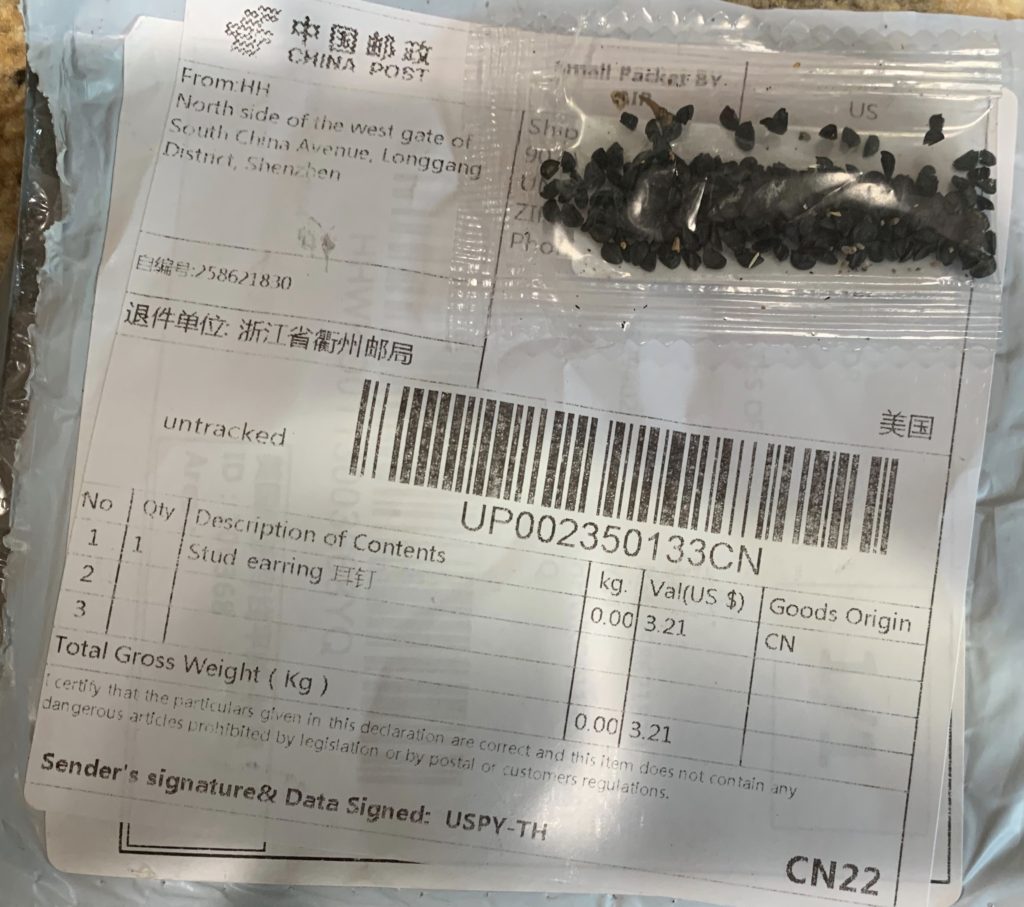“Mystery Seeds.” The first thing that came to mind was a possible title for a “Scooby-Doo” episode. Just when you thought 2020 couldn’t get any stranger, people in at least 10 states have received packages with a Chinese postmark and a label that says some kind of jewelry is inside. However, it’s a different story after they open the box.
What these Americans are receiving is an unsolicited package of seeds. States like Minnesota, Louisiana, Utah, Virginia, Kentucky, Washington state, and others are reporting similar situations. One thing to get out of the way right away is that under no circumstances should anyone plant those seeds.

“We’re uncertain what those seeds may be and why people are receiving packages they didn’t send for,” says Denise Thiede, Seed Unit Supervisor with the Minnesota Department of Agriculture. “Until we know more, we’re encouraging people to contact us because of the risk those seeds may pose to Minnesota agriculture and our natural landscapes.”
Washington state just recorded its first known case of an unsolicited seed shipment late last week. I talked with Karla Salp, the Public Engagement Specialist with the Washington State Department of Agriculture. Not one but two Washington residents picked up seeds in the mail they didn’t order from China.
“One of those residents sent us a picture of the seeds so we could see what they were talking about,” Salp says. “We thought they looked a lot like some kind of citrus seeds, while the labels said the packages contained some sort of jewelry.

“Initially, we had been telling folks who received the seeds to report it to USDA,” she said. “They handle reports of agricultural smuggling. “The social media post advising people to contact USDA has been seen by over 30 million people. We’re sure that USDA knows all about the problem now.”
So, the Washington Ag Department is asking their residents to put the seeds in a Ziploc bag and put them in their regular trash. Do not putt them in something like a compost pile. “Most of the packages have another package within them,” Salp says. “The seeds are often in a second package inside the shipping container. Residents need to leave the seeds inside the sealed container. Do not open them up, and definitely do not plant them.”
Each state will have its own directions for residents who receive the seeds through the mail. The Minnesota Ag Department says don’t throw away the package or its contents and do not plant the seeds,. After that, contact the Arrest the Pest line at 888-545-6684. They’ll need your name, contact info, and the date you received the package.
Minnesota officials will then coordinate shipping the package and its contents to the MDA Seed Program. The MDA is currently working with the USDA’s Smuggling Interdiction and Trade Compliance Program on identifying and destroying the seeds.
Salp says putting unknown seeds in U.S. soil could be problematic.
“It could be a combination of any of those three reasons I just listed,” she added. “It could be an invasive species that also carries a specific plant disease. These are some of the serious reasons that things like this need to go through the proper channels at the border if they’re a plant-based product.”
The USDA is working with federal and state agencies to investigate these unsolicited packages.
“We are also working with various online retailers to address some of these issues as well,” Salp said.
